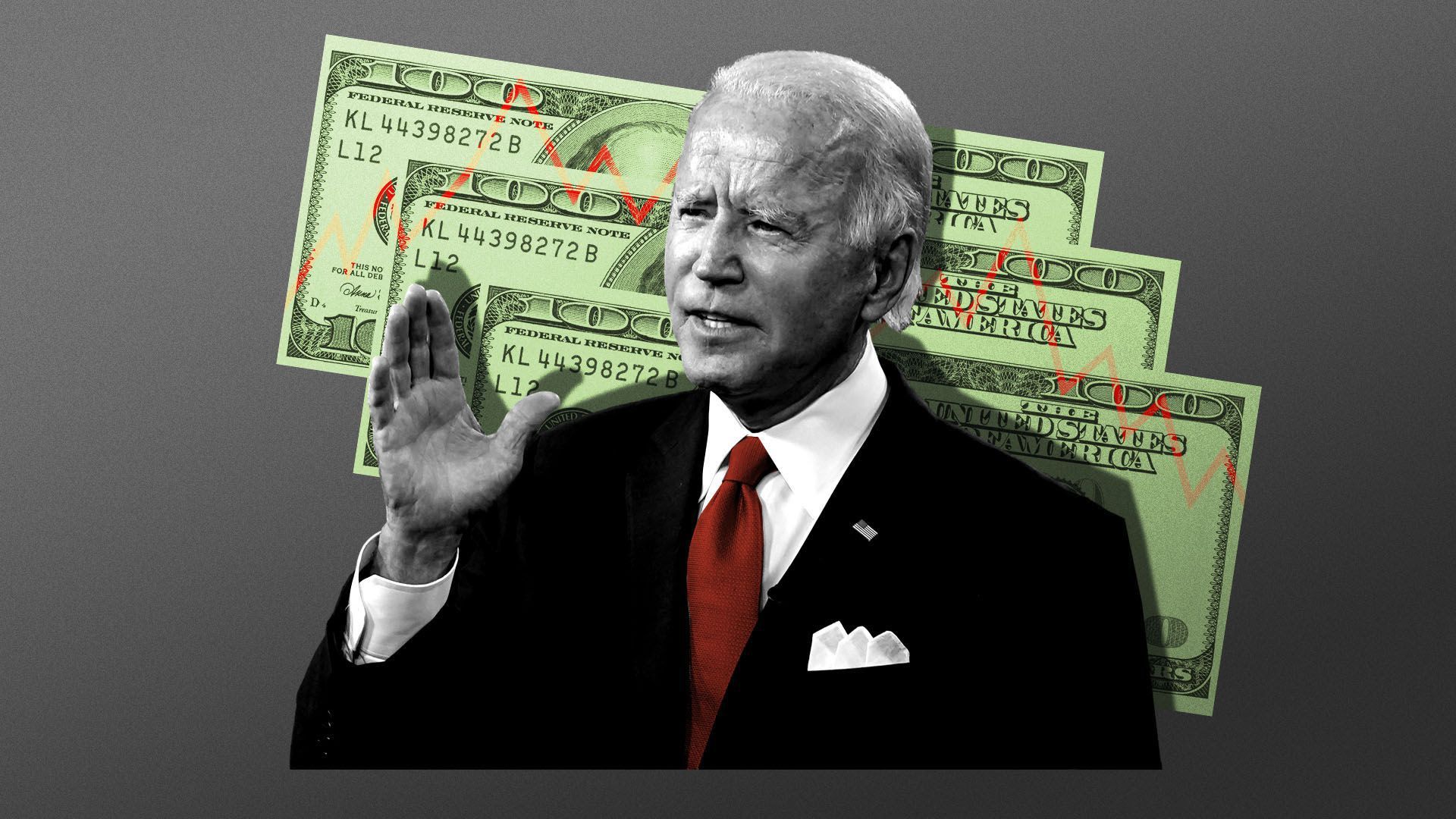Biden's make-or-break first 6 months
Add Axios as your preferred source to
see more of our stories on Google.

Photo illustration: Sarah Grillo/Axios. Photo: Drew Angerer/Getty Images
Business leaders see President-elect Biden's first six months as a make-or-break period for the economy — when he will either emerge as a promised bipartisan, centrist leader or submit to the demands of his party's progressive wing, lobbyists, top banks and the U.S. Chamber of Commerce tell Axios.
Why it matters: Both Presidents Obama and Trump were able to pass big-ticket legislative items, like the Affordable Care Act and the Tax Cuts and Jobs Act, at the outset of their terms, thanks to having a unified government in both chambers of Congress.
- Biden needs to do similar big things, but he currently faces a narrowly Democratic House and a Republican Senate. Even in a best-case scenario, he will operate with no better than a 50-50 Senate, making it a constant challenge to maintain his governing coalition.
What we're hearing: The business leaders say the pandemic is keeping the economy fragile, and they fear Biden will try to appease progressives, who want immediate regulatory action, through executive orders.
- "We prefer him to legislate rather than regulate, and we'll know which path he's able to take within the first six months," the Chamber's chief policy officer, Neil Bradley, tells Axios.
- Bradley added that the administration’s ability to get big pieces of legislation through hinges on a “policymaking center of gravity” of bipartisan legislators, similar to the group driving a compromise coronavirus stimulus package.
- Moving — legislatively — on issues enjoying both Democratic and Republican support will allow Biden and those legislators to log some wins and build their political capital, Bradley said.
The bottom line: While Wall Street would certainly prefer a more centrist administration that doesn't take a strong line on regulation or tax increases, their main priority right now is getting a new stimulus deal passed, Axios Markets editor Dion Rabouin tells me.
